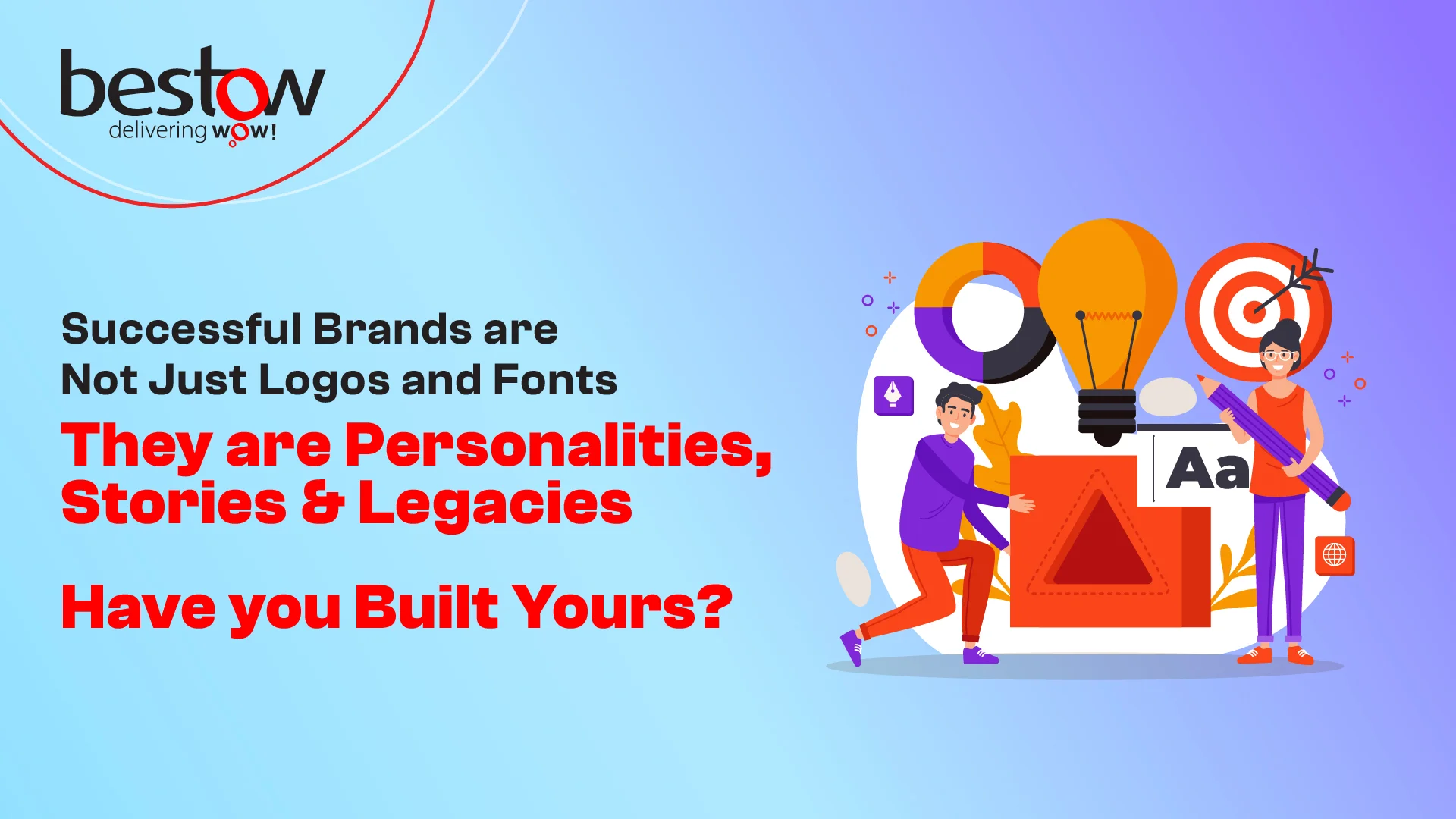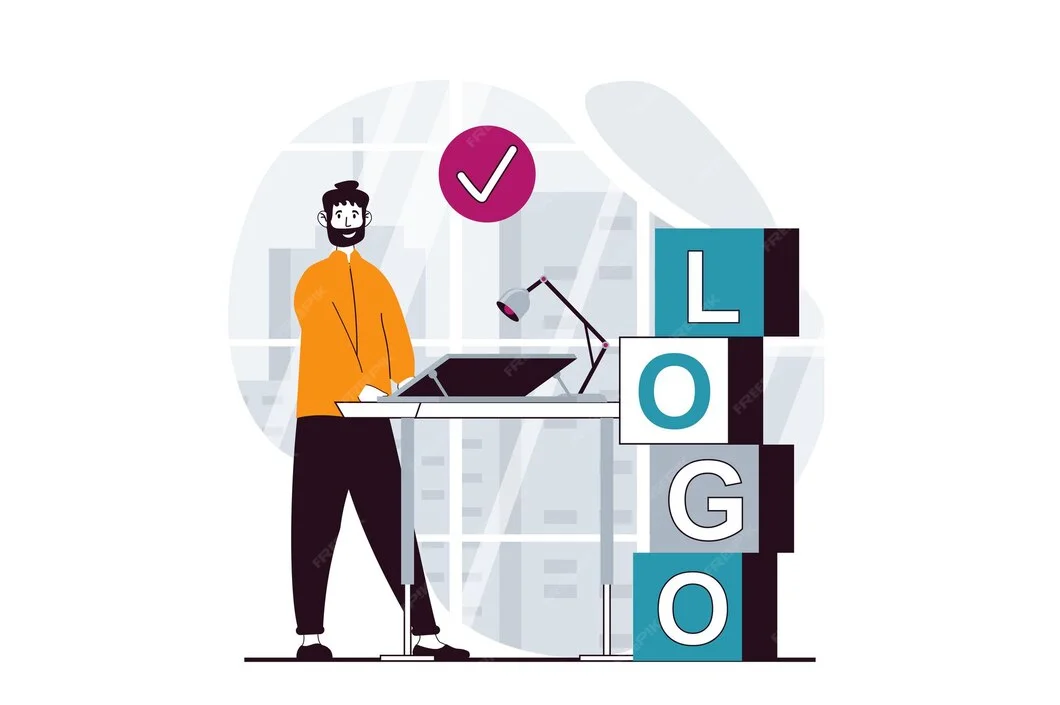Why Every Brand Will Need a Personality by 2030 (Not Just a Logo)

03/10/2025
Start Listening
Why Every Brand Will Need a Personality by 2030 (Not Just a Logo)
Let’s be real—by 2030, your logo won’t be enough to make people care about your brand. Sure, a nice design might get you noticed for a second, but what happens after that? The future of branding isn’t about how sleek your logo looks—it’s about how alive your brand feels. A 2023 Sprout Social report revealed that 64% of consumers want brands to connect with them on a personal level, rather than just bombarding them with ads. That’s a big wake-up call.
Additionally, with AI-driven personalization on the rise, brand personality will determine whether you’re remembered—or forgotten. Internet users are increasing by the day. A report says that India alone will have 1.3 billion internet users by 2030. That means your business isn’t just competing with the shop down the street anymore—you’re up against global players who know how to charm, connect, and build relationships at scale.
So here’s the truth: in this noisy, crowded, digital-first world, your brand can’t just look good—it has to feel human.

Branding Today: Definition vs. Evolution
At its simplest, a branding definition is how a company distinguishes itself from competitors through design, messaging, and values. But that’s just the starting point. Logos, color schemes, and taglines build recognition, but recognition without connection doesn’t inspire loyalty.
Think of the difference between brand image vs. brand personality. Image is how your brand looks; personality is how it behaves. A luxury brand may have a sophisticated image, but if its personality doesn’t make customers feel understood, it risks being replaced by a competitor that does. By 2030, personality will be the deciding factor in customer retention.
From Identity to Individuality
Many businesses today still focus on brand identity and consider brand personality as interchangeable. Identity is about how you want to be seen; personality is about how you act when people are watching. Just as people are judged not only by appearance but also by character, brands will increasingly be evaluated by their voice, tone, and behavior across platforms.
This is where individual branding becomes powerful. Companies that humanize their brands by giving them quirks, voices, and relatable traits create stronger emotional ties with audiences. Imagine a fintech startup that doesn’t just sell security, it “speaks” in a reassuring, knowledgeable tone, guiding customers like a trusted advisor. That’s personality at work.
Think about Nike. Its identity is sportswear, but its personality is grit, empowerment, and motivation—delivered through bold slogans like “Just Do It” and campaigns that celebrate athletes’ struggles as much as their wins. People don’t just buy Nike shoes; they buy into its personality of resilience and ambition. That’s the difference between a brand that looks good and a brand that feels alive.
If your brand doesn’t have a personality by 2030, it won’t just be ignored - it’ll be invisible. Let Bestow help you build one before it’s too late.
Storytelling as the New Competitive Edge
Logos won’t inspire loyalty on their own, but brand stories will. In an age of information overload, storytelling in branding is what makes people stop scrolling and start listening.
Brands like Amul, Zomato, or Paper Boat thrive because their personalities shine through stories; be it nostalgic campaigns, witty social media posts, or authentic founder narratives. A personality-rich brand doesn’t just tell people what it sells; it tells them why it matters.
And in 2030, with AI shaping more of our interactions, authenticity in branding will be a currency. Consumers will increasingly value brands that don’t just use AI for automation but also for AI-driven brand identity, balancing personalization with genuine, human-like storytelling.

Why Brand Personality Outshines Brand Logos
Let’s imagine two businesses in 2030. One relies on a striking logo but communicates with robotic, generic messaging. The other has a modest logo but a personality-driven voice that feels relatable, empathetic, and consistent across channels. Which one do you think customers will trust, engage with, and recommend?
Still confused? Let’s have a quick face-off
| Aspect | Brand Logo | Brand Personality |
|---|---|---|
| Definition |
A visual symbol that represents the brand’s identity. |
The human-like traits, tone, and behavior that define how the brand interacts and connects. |
| Role |
Recognition and recall in a crowded market. |
Emotional connection, trust, and loyalty building. |
| Consumer Perception |
Seen as static—“what a brand looks like.” |
Experienced as dynamic—“who the brand is and how it behaves.” |
| Longevity |
Can feel outdated if not redesigned over time. |
Evolves naturally with audience values, culture, and communication trends. |
| Engagement |
Passive—customers see it. |
Active—customers converse with it, share it, and feel part of it. |
| Value Creation |
Creates visual differentiation from competitors. |
Drives advocacy, higher lifetime value, and word-of-mouth marketing. |
| Example |
Pepsi redesigned its logo multiple times to stay relevant. |
Nike’s personality of grit and empowerment hasn’t changed—“Just Do It” still resonates globally. |
The answer is clear. Logos will still matter; they’re anchors of recognition, but without a defined personality, a logo is like a face without expression. Customers won’t just buy your product; they’ll “befriend” your brand.
The Road to 2030: Building Personality Now
So, how can businesses prepare today? Start by defining what kind of “person” your brand would be. Is it witty and bold, or thoughtful and empathetic? Invest in content that reflects that voice, from website copy to social posts. Use AI tools not as replacements for human creativity but as enhancers that can scale your storytelling.
The key is consistency: personality shines when it’s present across every customer touchpoint. And by 2030, this consistency will make the difference between brands people remember and those they scroll past.
Bestow Builds More Than Just a Logo
Your brand will soon need Brand Identity Experts to create a personality because customers won’t engage with static logos; they’ll engage with dynamic, human-like identities. A personality gives your business the power to connect, inspire, and build loyalty in ways a logo never could.
At Bestow, we specialize in helping brands transform from visuals to voices, from identity to personality. Whether you’re exploring storytelling, building authenticity, or creating an AI-driven brand identity, our team is here to guide you. Partner with the Best Branding Agency in Ahmedabad and make your brand unforgettable.
FAQs
Brand personality is the set of human-like traits a brand projects, such as warmth, trust, or boldness. It’s important because it helps customers emotionally connect, making the brand relatable and memorable.
A well-defined brand personality influences how customers feel and act toward a brand. It drives purchase decisions, builds trust, and often turns casual buyers into loyal advocates.
Small businesses can define their values, voice, and tone, then consistently reflect them across touchpoints. Even with limited budgets, authenticity and storytelling create strong brand impressions.
Amul’s witty humor, Apple’s innovative confidence, and Zomato’s playful relatability show how brand personality makes a business stand out in crowded markets.
By 2030, logos and visuals won’t be enough; audiences will expect human-like interaction. Brand personality will be the deciding factor in engagement, loyalty, and differentiation.
AI will help brands personalize experiences at scale while keeping messaging consistent. Used wisely, it can strengthen brand personality rather than make it feel robotic.
Trends point to hyper-personalization, AI-driven storytelling, and authenticity-focused branding. Consumers will prefer brands that feel genuine, transparent, and emotionally engaging.
When customers see a brand as “human” and relatable, they’re more likely to trust it. This emotional resonance fosters repeat purchases and long-term loyalty.
Consistency, authenticity, and relatability form the foundation. Tone of voice, storytelling, and values are all vital elements that reinforce brand personality.
Storytelling gives life to a brand’s personality by showing rather than telling. Narratives make brands memorable, emotional, and more engaging than plain advertising.
Categories
Recent Blogs
Send us a message
We'd love to hear from you
Let's build a plateform that works for you busines and the advertisers who trust it.
Talk to Our Expert